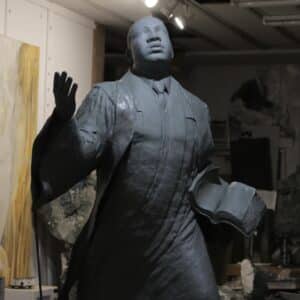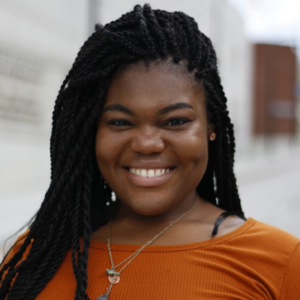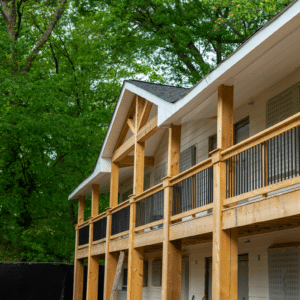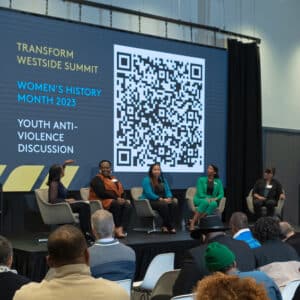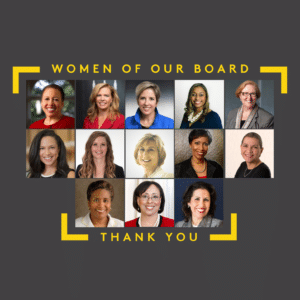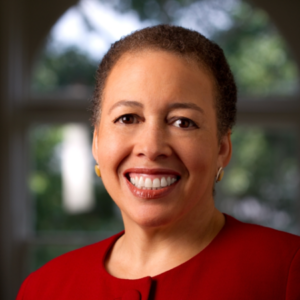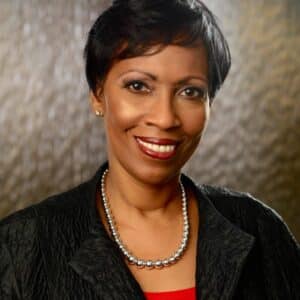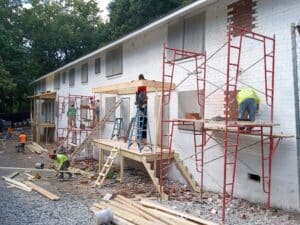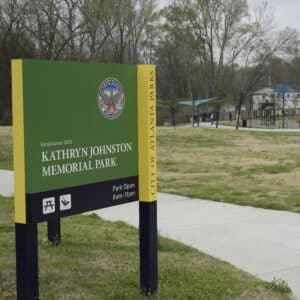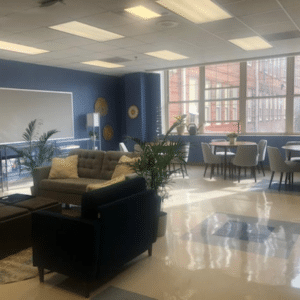When she first arrived in Atlanta in 2002, Dr. Beverly Tatum stepped into a critical role for the success of the City. A life-long educator, Tatum was named President of Spelman College – a leading educational institution for Black women, not only here in Atlanta but around the world.
She brought years of experience with her. She attended Wesleyan University for her undergraduate education in psychology before earning her master’s and doctorate degrees in the field from the University of Michigan. From there, she went on to teach briefly at the University of California at Santa Barbara and Westfield State College in the subjects of Black Studies and psychology in the 1980s. She then landed at Mount Holyoke University in South Hadley, Mass., where she served as a professor and dean of the Psychology department before being appointed interim President of the school.
A brilliant academic, Tatum focused her studies in psychology around the issue of racial inequity and its systemic roots. Naturally, Spelman College, a school founded on the matter of addressing racial inequity, was a perfect fit for her leadership.
Founded in 1881 by Christian missionaries, Spelman College served the critical purpose of educating Black women less than a generation out of enslavement with the goal of these women then going out and educating the communities they came from.
“The idea was that Spelman women would be able to get a quality education and then use it to transform the communities from which they came, and that was the history and role Spelman played locally here in Atlanta and beyond, going as far as Africa,” said Tatum. “A third of the women who graduate from Spelman have remained in Atlanta and are a crucial part of the engine that drives our City. I like to say if you meet a Black woman who is in a leadership role in a corporate or civic setting here, the odds are high that she is a Spelman graduate.”
During her tenure as president, Tatum led initiatives to improve Spelman, the neighboring historic universities, and the community and neighborhoods surrounding them, but she quickly realized they needed more than what the accessible resources of the institutions could provide.
“These were communities that were disinvested and intentionally so, it was not an accident. They were left without working sewers, without drivable streets, and it was no secret that these became highly segregated neighborhoods,” said Tatum.
Her time working closely with local leaders had made her evidently aware of the vast needs the surrounding community required. Adequate affordable housing was limited, schools were unsupported, healthcare was inaccessible and food markets were scarce. Her vision for the community was going to need something bigger—a collection of visionary leaders who could take on the critically needed mission of revitalizing the Westside.
In 2014, shortly after announcing her intention to retire the next year, she realized her own vision was shared by many others. Tatum had long served on the Atlanta Committee for Progress, an advisory council to the Mayor of the City. She started under the leadership of Mayor Shirley Franklin and continued under Mayor Kasim Reed, who one day approached her and asked if she would serve on the board of an soon-to-be formed organization called Westside Future Fund.
He described it as a group of civic and corporate leaders who would lead an effort for the revitalization of the four historic neighborhoods of the Westside, bringing together some of the city’s best and brightest. Instantly, she knew it was an opportunity to accomplish a long-standing goal of her own.
“It had been a goal for myself and the university to assist in the revitalization of the neighborhoods surrounding the college. We found it hard to do as one organization or even in partnership with the other AUC schools. There was so much need and not enough resources to be able to do the kind of things that now Westside Future Fund is doing–acquiring property, renovating houses–things that weren’t in the purview of the college but essential to the revitalization of the neighborhoods,” said Tatum. “I realized that as I was exiting Spelman, being involved with Westside Future Fund from day one would give me the opportunity to work on some of the things we had hoped to accomplish.”
In December 2014, the inaugural Westside Future Fund Board of Directors was named, including Dr. Beverly Tatum. From the start, her focus was dialed in on education for residents from cradle-to-career.
“As a life-long educator, focusing on education was the place where I first got involved as a board member. Around the same time we were getting started, Hollis Innovation Academy was starting up. It was a unique situation, the first public school in the City to offer education starting at Pre-K. I had the opportunity to meet the new principal, Dr. Diamond Ford, and it was immediately clear we could support educational resources in the community through partnership,” said Tatum. “From there, we went on to work with Booker T. Washington High School and eventually the whole Booker T. Washington School cluster. The progress we’ve seen in these schools since has been tremendous.”
Her work on the board has not been limited to education. Tatum has played an integral role in the decision making of WFF’s highly-successful initiatives. In 2020, she was named the first woman Chair of the Board. For Tatum, WFF’s approach to accomplish equitable revitalization in the community is what stands out as most essential to the organization’s success.
“One of the things that really attracted me from the start about this work is how holistic it is. It wasn’t just about acquiring land,eliminating blight and rehabbing buildings, though that is important. It was also about looking at the education available in the community, access to healthcare, how infrastructure could support job and economic growth opportunities,” said Tatum. “The revitalization of the community that is being done is a wonderful thing that ensures the people who have lived and labored in these communities for so long are able to benefit from the improvements that are taking place.”
In her eyes, it also plays a critical role in advancing the institutions that educate essential Black leaders in the Atlanta community and beyond.
“It’s important to the AUC institutions that the neighborhoods surrounding them be thriving neighborhoods. Students want to come to schools where the neighborhood is safe, has amenities and it feels like an exciting place to be. As a leader of one of the instructions, we always wanted our institution to thrive and the neighborhoods around it to thrive,” said Tatum. “I continue to see that as important, but most importantly it’s about equity, fairness, and social justice.”
Tatum’s tenure as Chair of the Board will come to a close at the end of 2023, but her leadership within the community will be far from over. As the Westside continues to revitalize into a community Dr. Martin Luther King Jr. would be proud to call home, both Tatum and the entire WFF board will continue to support it.
“It’s been a tremendous privilege to serve on the board. It is a wonderful group of community leaders who are giving their time to advance the cause and mission of the organization. The work is so important. We know that what we are doing on the Westside needs to be replicated in other neighborhoods and communities, and I think we are creating a template for what can happen when people come together to bring the resources that are long overdue to bring about positive change,” said Tatum. “It’s exciting to see the ways that the neighborhood is being transformed so that we are not driving people out but rather ensuring that we include the local residents as well as making space and opportunities for new people to move in. I’m incredibly excited for the future of this community.”

